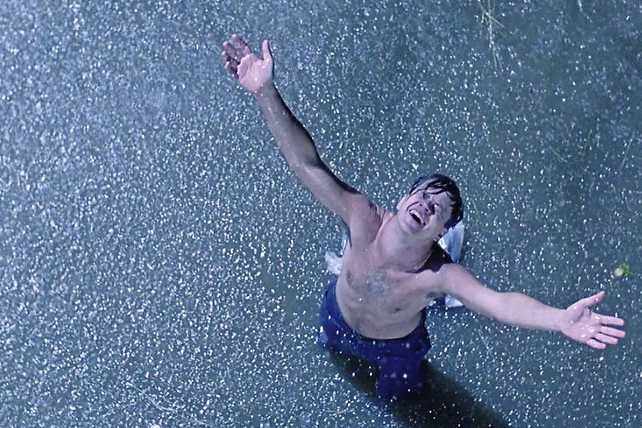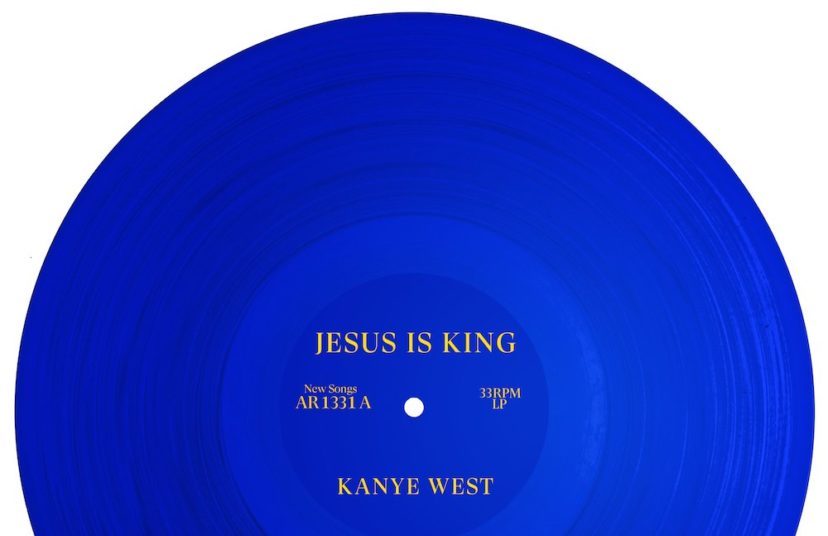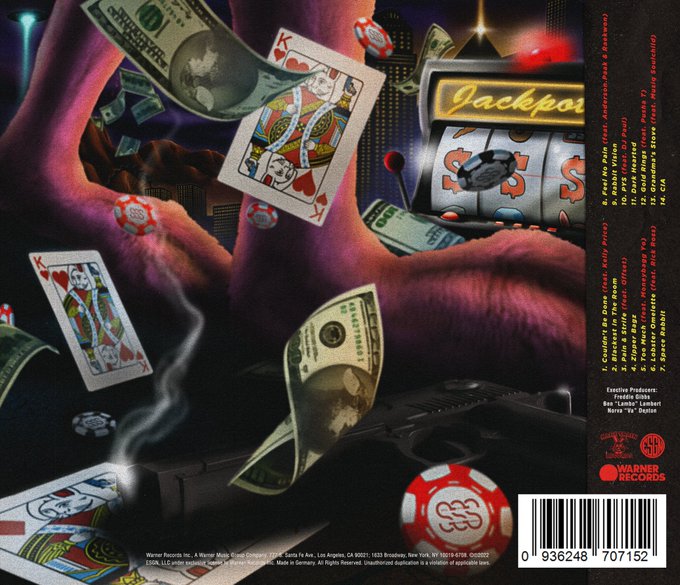An essay by Thomas Holton
@T__Holton
When I was younger, my family went to church every Sunday morning without fail. Then, one Sunday, the morning passed without any of us thinking we were forgetting something. No one mentioned why, and 7 or 8 year old me didn’t question it. When you’re a kid, you don’t think too much about things like that; you just go wherever your parents go.
Like almost all of us, my relationship with God goes through phases. Regardless of our religious commitment, we all go through periods of doubt and confusion about what it all means and if there’s anything for us after death, while also experiencing moments where we are sure that a higher power is shining down on us.
Many of these moments of bliss come through music, for me, by way of Chance The Rapper’s album Coloring Book. When I go back to that album, not only am I hit with a heavy wave of 2016 nostalgia, but I feel closer to God. I feel like an artist has let me into their world and painted an honest portrait of how they see things. This vulnerability connects us as listeners to artists whose life experiences and perspectives differ from ours.
When I press play on Kanye West’s newest album, Jesus Is King, I don’t feel that. From the moment I get dropped (quite literally) in the middle of a service, there is a nagging sensation in the back of my mind reminding me of all the buffoonery that Kanye’s name has been attached to over the past couple years. Is this fair to Kanye? Maybe not, but he isn’t exactly blameless for clouding his listeners’ subconscious.
Hype for a new Kanye West album has been building slowly through a series of viral clips of Kanye’s now infamous Sunday Services, which he has held all throughout 2019. This pivot towards Christianity comes in the midst of a tumultuous couple years, in which Kanye has received widespread condemnation for his comments regarding slavery and his political endorsement of Donald Trump.
All of this runs through my mind as the album kicks off, with Kanye nowhere to be found, allowing God to speak for him in a prologue of what’s to come.
He arrives on the song “Selah,” a track that shares many similarities with West’s own song, “I Thought About Killing You,” most notably in the way their instrumentals gradually build around Kanye’s vocals. The percussion is tribal and brings to mind images of Kanye leading a sermon of thousands.
“Follow God” is the most sonically pleasing song on the album, one whose production packs a punch that’s hard to find throughout the rest of the album. Kanye’s flow is impeccable and sits perfectly in pocket on top of a 1974 sample from Whole Truth…
Then comes “Closed on Sunday”, a song that I would describe as Christian-youth-camp-counselor-attempting-to-relate-to-the-campers rap. Hearing one of the greatest artists of all time tenderly whisper to his listener, “You my Chick-fil-A,” is surreal to say the least. It seems Kanye always has at least one line like this in each of his newer albums, so it wouldn’t surprise me if he intended it to be cringeworthy. It’s so terrible that it’s my favorite part of the album.
The album gets back on track with “On God.” The production here feels big, the background synths and spacey, atmospheric vocals sounding like something from Kanye’s beloved movie, Tron. Kanye’s delivery is full of charisma, while also delivering some compelling lines: “I bleached my head for every time I could’ve died. But I survived.” Hearing Pierre Bourne’s tag finish out the song is a great moment of gratification for fans who have been following his come-up.
One of the best additions to the album comes in the form of singer Ant Clemons, who shines on the hooks of both “Everything We Need” and “Water,” assisted on the former by the ever-consistent Ty Dolla $ign. “Everything We Need” is a shimmering, trap-infused track centered around divine gratitude, while the off-kilter guitars and harmonies found on the shimmering “Water” make it one of the most interesting tracks on the record. However, Kanye deads any building emotion with a repetitive, forgettable verse whose monotone delivery falls flat.
“God Is” is a sprawling ballad that starts out with the potential of becoming cheesy, but recovers by its conclusion, with Kanye’s raspy vocals climbing to a crescendo while showing genuine passion, renouncing all other false idols.
The next song, “Hands On,” sounds like a demo. Over minimalistic production, Kanye’s vanilla performance doesn’t do enough to command center stage; and coming off of the emotion of “God Is”, the track comes off as forgettable.
“Use This Gospel” is the most high-profile track on the album, with the much-anticipated reunion of Clipse and the lovely sounds of Kenny G’s saxophone, whose presence is somehow not the most absurd thing about this album. The production is muddled, with a series of autotuned background vocals reminiscent of something found on 2010’s My Beautiful Dark Twisted Fantasy. Both Pusha T and No Malice sound right at home together, with a pair of concise, spaced out verses on their own relationships with God.
The grandiose horns on “Jesus Is Lord” bring us to the conclusion of the record. The track feels like an award ceremony in heaven. Kanye conveys the importance of his feelings well on this track; it feels like a grand finale. But due to the album’s brevity, it feels somewhat out of place, like it would better fit at the end of an album with the ambition or length of the aforementioned My Beautiful Dark Twisted Fantasy. Kanye takes the 49-second track to pledge his servitude towards the Lord one last time, before the horns cut off as abruptly as the chorus arrived in the album’s opening.
My initial thought after listening to Jesus Is King for the first time was that Kanye did what promised to do: make gospel songs. There was no spin or massive surprise; here the songs were. Eleven of them. So why did I feel like something was missing?
Maybe the answer to that question lies in what could’ve been.
Firstly, it’s important to keep in mind how distinctive each of Kanye’s albums are, every one a glimpse into the wider landscape of the times. The mastery of his groundbreaking 808s and Heartbreak can only be understood in the context of his mother’s tragic passing and the breaking off of his engagement. As much as we try as fans to focus on the music and the music alone, the context an album is made in can affect our feelings as much as the music itself.
Considering the string of events that led up to Jesus is King’s creation, there was no shortage of compelling content for Kanye to rap about. His sudden worship of Jesus Christ and claims that he will no longer make secular music shocked many; and this career pivot fostered curiosity about how he arrived at this point.
On Jesus Is King, however, we gain little insight into Kanye’s journey. The emotional depth of a record like Kids See Ghosts is nowhere to be found, when a deeper dive is exactly what fans were looking for. What’s most frustrating is seeing Kanye make passing comments on his sex and porn addictions, his thoughts on how religion operates within the wider culture, and the time period in which he was saved. All of these subjects beg to be fleshed out, but Kanye fails to capitalize on their potential.
Jesus Is King feels like a biblical celebration from the top of the kingdom, but it feels like only Kanye knows what the celebration is for.
The album doesn’t feel like the cathartic celebration Kanye intended it to, mainly because it feels like there were pages ripped out from the story. It’s like seeing Andy Dufresne from The Shawshank Redemption being beaten up by prison gangs, before cutting to the famous shot of him with his arms held high to the heavens, being cleansed in rainwater. In what’s supposed to be a moment of triumph, we as consumers are left with more questions than answers.

This misstep illuminates one of the most disappointing aspects of Jesus Is King: that there is nothing all that interesting about it. The interest this album has garnered comes from the fact that it was made by Kanye West – the surrealism of an artist as influential and abrasive as he, dedicating an album to Jesus Christ.
The record’s one-dimensionality isn’t inherently the problem, though. The problem is this: We begin in the middle of a service praising God, and we end in the same thematic place, with Kanye singing the praises of his savior; beyond a few lines, it seems as if we’ve accomplished or learned very little.
In a moment where Kanye is perhaps the most polarized he’s ever been, Jesus Is King’s tendency to paint over the scars of Kanye’s past, rather than digging to get to the root of them create a feeling of distance, when so much of Kanye’s focus through his Sunday Services was to bring people closer. The actual music doesn’t do enough either to pick up the slack caused by the surface-level content. In this way, one could spin this lack of depth as a positive, seeing the album as a snapshot of Kanye in 2019; though if that’s the case, it’s a snapshot that’s too unclear to leave a lasting impression.
Through this shallowness, however, comes moments of beauty and glimpses of a more focused, driven Kanye – so many that it’s impossible for the album to be dismissed. Kanye’s arrangements and general charisma manage to keep the album from falling flat on its face. However, Kanye’s raw talent can’t mask the album’s conceptual flaws.
In his recent interview with Zane Lowe, Zane asked Kanye whether he had a desire to convert his fans to Christianity with this album, to which he replied: “That’s not a desire. It’s my only mission and calling. To spread the Gospel.” He goes on in the interview to claim he is not an entertainer anymore. This is further affirmed on “God Is”, through the line, “This a mission, not a show.”
If Kanye’s goal is to make people understand what God has done for him and how God can save the listener as well, he has to treat that subject with the care and attention it deserves. However, too often on Jesus Is King he resorts to settling for referencing Bible verses and regurgitating traditional Christian sayings rather than attempting to say something substantive. And when he does attempt to connect his love of God to issues outside of himself, it comes off as half-hearted and detached, such as his line in “Closed on Sunday”: “Hold the selfies, put the ‘Gram away. Get your family. Y’all hold hands and pray.”
After sitting with this album for a while, it’s become clear to me that Kanye doesn’t realize the importance of the crossroads he is at. He will always have fans, but many of them can no longer stand behind his actions; and with unfinished or poorly mixed records becoming the norm, they may no longer see the music as worth defending him for.
Yet, it didn’t have to be like this. This album was a chance for Kanye to earn back his credit with the people, to make them understand his newly discovered faith. Unfortunately though, the album’s lack of vulnerability leaves it feeling too hollow to leave much of an impact. Kanye’s disinterest in his listeners has worked to his advantage before, but considering the content of Jesus Is King, and his newfound goal of converting his fans, this lack of consideration is counterproductive.
There are some good songs, though.
Rating: 6 out of 10
Tracks to Save: “Follow God, “On God”, “God Is”
Tracks to Skip: “Closed on Sunday”, “Hands On”
Soflosound.com is your one stop shop for a music fan’s music reviews, profiles, and essays. By the youth, for the youth, and allied with oldheads everywhere. Leave a comment below on what you want to see next!



